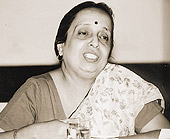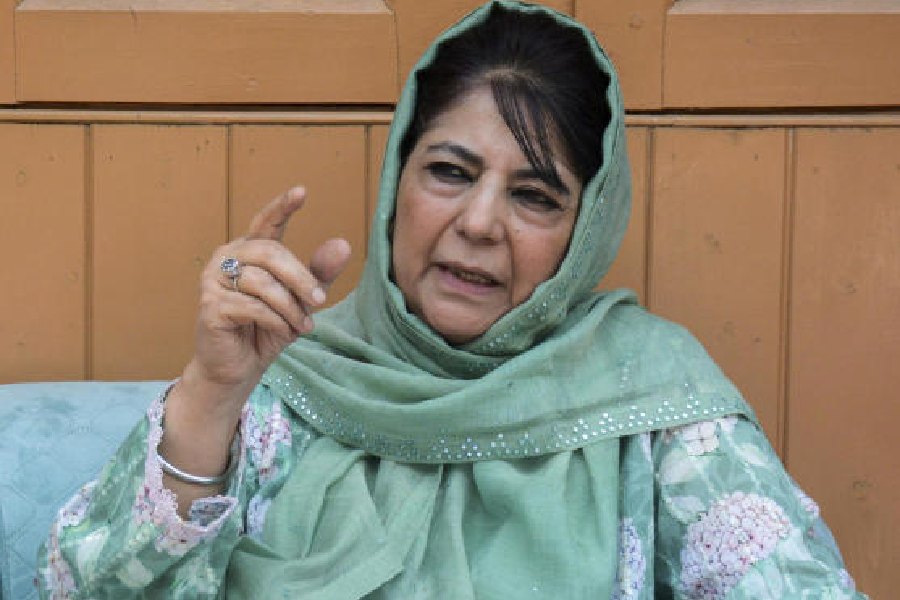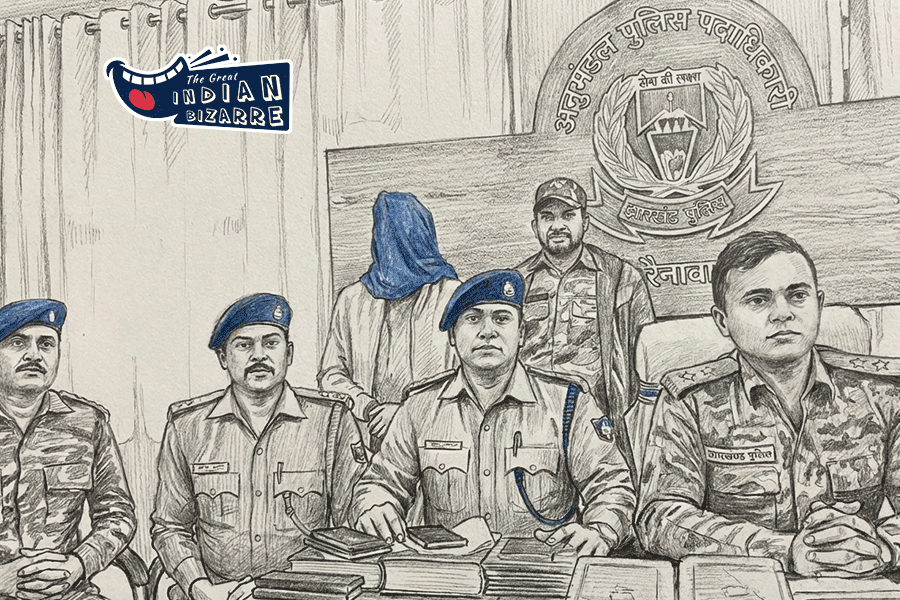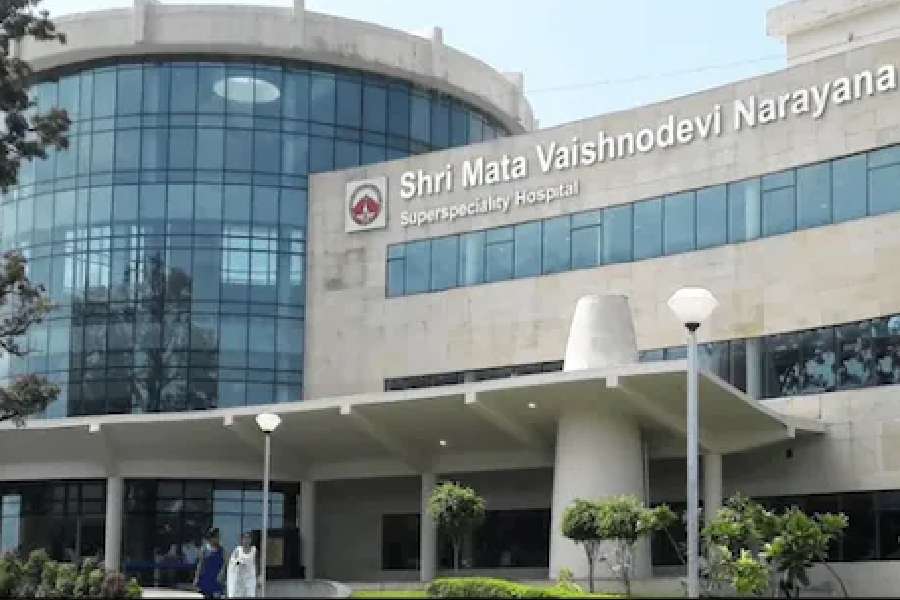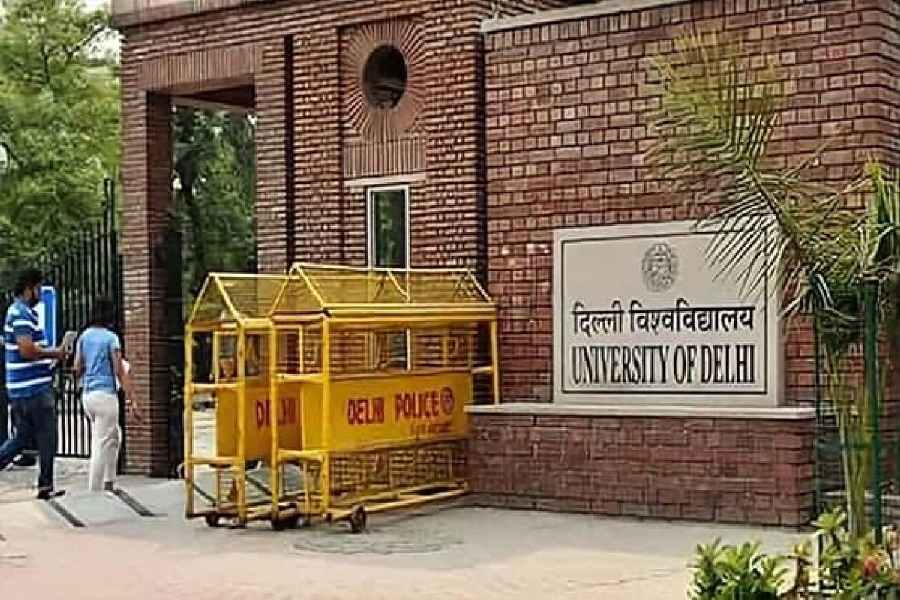 |
| Renuka Ravindran in the city. Picture by S.H. Patgiri |
Renuka Ravindran seems to bestow faith on the motto “Simple living, high thinking”. Or else, how can one summarise this simple woman, who is one of the few illustrious female mathematicians of the country?
The composed woman looks calm and happy amid the quiet environs of the Indian Institute of Technology (IIT) campus in the city.
Clad in a simple white sari with floral print and a bindi, she cuts a motherly figure. Looking out of the window pensively, she points out that the Northeast is way behind in the field of science and technology.
“Every year we conduct a programme called ‘Kishore Vagyanik Protsahan Yojana’ in order to encourage young students to opt for a career in science. They are made to spend the summer vacations by getting acquainted with the various laboratory techniques. But the response from the Northeast is very minimal,” she says.
With a PhD in applied mathematics from the Indian Institute of Science, Renuka went on to Germany for further studies in aerodynamics. She has also been a visiting professor to several universities in the country and abroad. At present, she is the dean of the science faculty and professor in the department of mathematics, Indian Institute of Science (IIS), Bangalore. Earlier, she had held important posts like chairman, department of mathematics, IIS.
She asserts there are many institutions in the country which are on a par with some of the best in the world. Praising her alma mater as well as workplace, the IIS, Bangalore, she says, “A research centre should not be like a nursery school. There’s no harm in being elitist when it comes to advanced research.”
On IIT, Guwahati, she says it has some of the best facilities. “But the real test of an institute is, ultimately, what it can produce. It’s too early to comment on its performance,” she points out.
She had also won several awards like the Borchers plaque for completing a degree course with “outstanding” grades, Sofia Kowalewskaja guest professorship, University of Kaiserslautern, 1996, among others. She is also the recipient of the Alexander von Humboldt Fellowship, 1977, 1992 and German Academic Exchange Fellowship, 1971-73.
Assam is not a new destination for her. Ravindran’s husband, who was in the army, was posted here.
“I have experienced the monsoons here which is very much like Kerala. I have heard the beautiful and rhythmic folk songs of Assam. I also like the idea of gifting the Assamese scarves called gamocha,” she says.
However, Ravindran seemed to be unhappy with the improper harnessing of the tourism potential that the majestic Brahmaputra offers.
She rues, “You have a beautiful river, but it has not been put to use. I can hardly see any tourists or cruise vessels moving around here. I remember on the Rhine in Germany, barges were moving around all the time.”
“The rich hydel resource on the river can be used to generate hydro-power for the villages with the help of mini hydel projects,” she says.
Ravindran has been teaching at various levels at the IIS, both for graduate students in engineering as well as research students in the mathematics department. She has also been teaching at the University of Kaiserslautern, Germany, under the International Mathematics Programme.
Laying stress on the development of science education at the school level, she says, “Some of our best brains come from the villages of the country. In fact, setting up science clubs will be a good way of nurturing young talents.”
She also suggests setting up of summer schools in different parts of Assam. “The service of the IIT professors can be asked for. Children should be exposed to the latest developments in the realm of science and technology,” she says.
She wouldn’t mind pitching in either. “I enjoy visiting this place. But it is the hospitality of the people which makes us feel like coming here again and again,” she says.
But it’s taking science to the young minds that Ravindran is passionate about. “Instead of television, children should be encouraged to watch stars,” the passionate mathematician signs off.
Teresa Rehman

